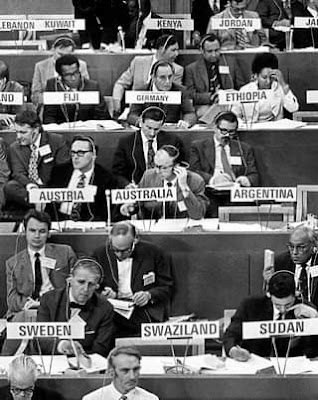The special issue is meant to commemorate the 50 years since the 1972 United Nations Conference on the Human Environment, universally known as the birthplace of global environmentalism. The Stockholm conference hosted 112 national delegations, UN specialized agencies, international NGOs, and a counter-conference organized by environmental activists. It established a range of institutional, political, intellectual, and cultural developments that made the environment a pressing global issue. Participants adopted instruments such as the Stockholm Declaration and Action Plan for the Human Environment and prepared the ground for the United Nations Environment Programme. This special issue wants to explore the conference and its legacy. The Stockholm Conference established international political goals and legal principles that have underpinned environmental discourse and law-making for a half-century. By stressing that environmental issues are inherently political – and not just scientific and technical - it devised systems for data research and monitoring. It also catalysed multilateral cooperation and treaty-making and the setup of national environmental ministries and environmental laws. Moreover, it contributed to the democratization of environmental debate and policy-making, opening to non-governmental organizations previously not included in the UN system.
The deadline for proposals is 30 March 2022. More details at H-Environment.

No comments:
Post a Comment